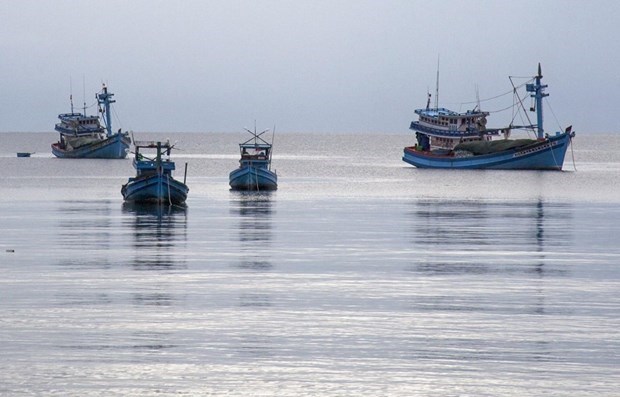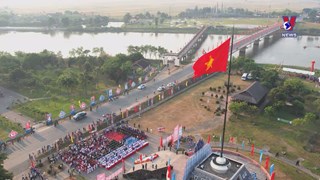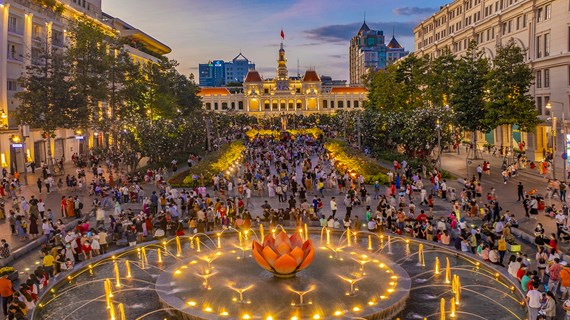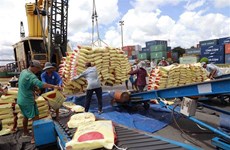Ben Tre eyes to become Mekong Delta’s marine economy leader
Ben Tre is striving to become one of the provinces leading the Mekong Delta region in terms of the sea-based economy.
 Illustrative image (Photo: VNA)
Illustrative image (Photo: VNA)The provincial People's Committee has just issued a plan to implement the Government’s Resolution No. 48-NQ/TW on the strategy for sustainable exploitation and use of resources, and protection of the sea and island environment by 2030, with a vision to 2050 in Ben Tre.
The committee’s Vice Chairman Nguyen Minh Canh said that in the coming time, the locality aims to become one of the provinces with strong and sustainable marine economic development, with a focus on developing renewable energy, fisheries and tourism; gradually form a marine ecological culture; adapt to climate change; ensure the marine environment; prevent coastal erosion; and preserve and promote the marine ecosystem.
Accordingly, from now to 2030, Ben Tre will prioritise allocating marine space for renewable energy development and new environmentally-friendly marine economic sectors while supporting investors to accelerate investment progress in wind power projects whose planning has been approved.
The province is also striving to have accumulated capacity and output of wind and solar power of 1,500 MW by 2025 and 3,000 MW by 2030 and to build a green hydrogen plant project.
Ben Tre focuses on developing aquaculture using high technology and biosafety, with a target of reaching 450 million VND (18,300 USD) per hectare of aquaculture products by 2030. The area of marine aquaculture will reach 42,000 hectares, with a total output of 136,000 tonnes, of which high technology will be applied on 5,100 hectares.
The Mekong Delta province will also complete and upgrade the database and fishing vessel monitoring system, develop traditional craft villages, and improve the service quality of fishing ports, storm shelters, fishing ship repair facilities, and logistics establishments.
It expects that total revenue from tourism activities in the three coastal districts will increase by an average of 25% a year, and account for about 20% of the province's tourism revenue by 2025 and 30% by 2030./.













